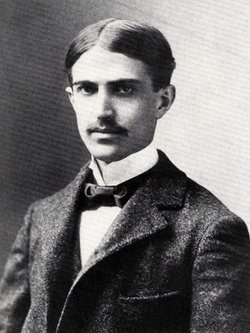Crane, Stephen: The Open Boat

When I read, I look for takeaway. What does this story or article or novel or poem tell me that I do not know, that I would like to remember ten years from now? I don’t mean mechanical instructions, not how to fix a computer or car or other such accessory, but how to fix myself. I recently picked up Stephen Crane’s story, “The Open Boat,” recommended by H. G. Wells as “the finest short-story in the English language.” I wouldn’t go that far, but here’s the take-away.
It’s the story of four men in a boat on the open sea close enough to land to see a bicyclist on the shore, but not close enough to be safe. The initial sentiment is egocentric: “If I am going to be drowned, why, in the name of the seven mad gods who rule the sea, was I allowed to come thus far and contemplate sand and trees? Was I brought here merely to have my nose dragged away as I was about to nibble the sacred cheese of life? Fate is an old hen who knows not her intention, but she cannot mean to drown me. Not after all this work.” A later sentiment is worldlier: “When it occurs to a man that nature does not regard him as important, he at first wishes to throw bricks at the temple, and he hates deeply the fact that there are no bricks and no temples. She did not seem cruel to him then, nor beneficent, nor treacherous, nor wise. But she was indifferent, flatly indifferent. It is, perhaps, plausible that a man in this situation, impressed with the unconcern of the universe, should see the innumerable flaws of his life, and have them taste wickedly in his mind, and wish for another chance. A distinction between right and wrong seems absurdly clear to him, then, in this new ignorance of the grave-edge, and he understands that if he were given another opportunity he would mend his conduct and his words, and be better and brighter during an introduction or at a tea.”
It wouldn’t be fair to divulge the ending, so I won’t. The language may be dated (the story stems from 1897), but the sentiment is not. Crane is best known for The Red Badge of Courage, perhaps minor in the American pantheon, but tragic when you consider Crane was just twenty-five when it was published, thirty when he died.